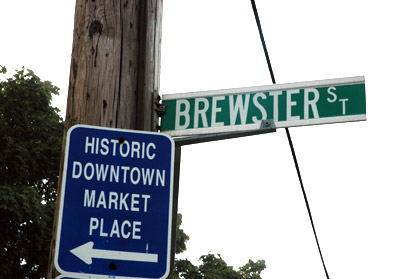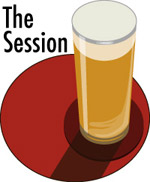

The topic for the 81st gathering of The Session is Beer Feminists (or Scary Beer Feminists or a Healthy Growing Demographic?). I hope this in on, rather than off, topic.
Judith M. Bennett’s Ale, Beer, and Brewsters in England: Women’s Work in a Changing World 1300-1600 is a terrific resource, full of information about beer and brewing in England. One review describes it as “pedantic.” That works for me, as do the footnotes leading to still more useful resources.
The second half of the title — Women’s Work in a Changing World — seems as relevant to today’s topic as the first six words. Women, called brewsters, made and sold most of the ale drunk in England in 1300. By 1600 the production of ale and beer was much more profitable, and controlled by men. Additionally, the male form, brewer, became the only noun referring to men or women who made beer (although in a few places, notably northern England, brewster was the default). Bennett makes sure we understand why.
I had originally conceived the project as a story of change, a story of how women were forced out of an industry as it became profitable and prestigious.
Instead she tells the story a different way.
… the substantial transformation occurred not in women’s opportunities for good employment but in brewing itself. Although in 1300 women had brewed for profit more frequently than they would in 1600, the status of their work did not really change. In 1300, brewsters were able to work because the trade was accessible to them; as low-status, low-skilled, poorly remunerated work, it attracted little male participation. … In 1600, women still worked in areas of brewing that remained low status, low skilled, and poorly paid. … they hawked ale in the streets, they sold ale from their homes, and they carried ale on their back from brewhouses to clients.
The book, as others she has written, is about feminism and history. “I have tried, in other words, to give patriarchy a history by showing how, in one trade, the broad relationship between male advantage and female disadvantage remained unchanged in a changing world,” she writes in the first chapter.
Bottom line, her book provides important context for a lively discussion about beer feminism.
Sounds like another interesting addition to the library. I’ve got mine on the way, and recommended it in a reply to a comment on my (belated) contribution to the discussion: http://tempestinatankard.com/2013/11/14/celebration-time-women-and-the-craft-beer-world/